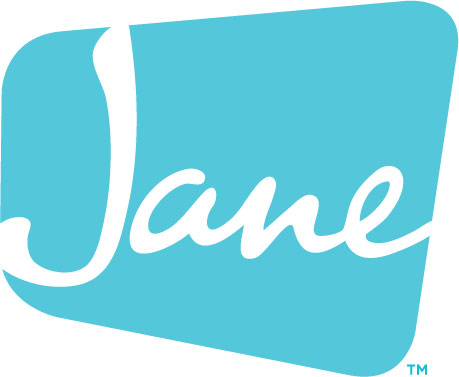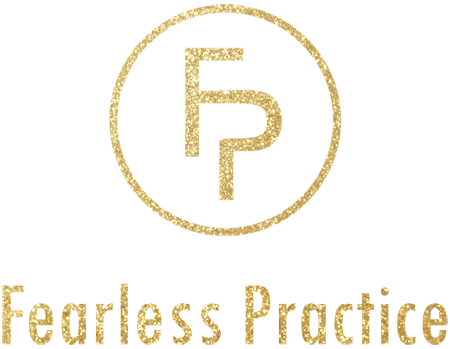COMPENSATION MODELS FOR CONTRACT THERAPISTS IN CANADA | EP 173

Every private practice is a little different in how it goes about business, especially when it comes to having contract therapists. Usually, the practice owner and contractor figure out the best system that works for them, which means there is generally more than one way around a problem!
Regarding compensation for my contract therapist, we have tried and tested a few options before settling on what works best for us: a percentage-based compensation system with an invoice-accrued model.
If you’d like some tips on how I manage this process each month (or you want to know what this even means!), welcome to this podcast episode.
Jane is an all-in-one health and wellness practice management platform designed to be helpful to you, no matter how or where you practice. Available online and on any device, Jane offers branded online booking, beautiful scheduling, insurance management, customizable charting, online intake forms, patient reminders, integrated payment processing, online appointments (telehealth) and more! Use the code FEARLESS at signup to receive your first month completely free!
In This Episode
- My experience with growth
- Why finding the right compensation model matters
- How to pay a contract therapist
- How to use the invoice-accrued model
My experience with growth
If you’ve been following my private practice journey over the past few years, you’ll know that I’ve grown my solo practice into a small group private practice by hiring my first contract therapist.
‘Over the years, we have tried different compensation models of how to pay out the contract therapist each month, and I thought that now is a great time to share what I’ve learned, and what compensation model I think is best for contract therapists!’ – Jules Smith
Why finding the right compensation model matters
Each practice may do things differently. It is important to find the right compensation model for the therapist contractors in your practice, because how you pay them will directly affect their financial stability, as well as their job satisfaction.
‘In my group private practice, my contract therapist earns a percentage of the fee per session instead of an hourly rate. This means that she makes a lot more money! But on the flip side, there’s no guarantee that [all] of her sessions will be filled each week.’ – Jules Smith
I decided to hire a contractor instead of an employee because I run a smaller business. Having a contract therapist means less paperwork, more financial stability, and tax headaches for me, and it also gives the contractor more freedom, flexibility, and potential to earn more each month.
How to pay the contract worker
First, we decided it would be a monthly payout, rather than a bi-weekly payout. Then, we had to decide on the payout model: invoice-accrual-based pay or cash-based pay.
‘For the first couple of years, we decided to do invoice-acrued. This meant that my contract therapist was getting paid no matter whether I had received payments from clients or not. Now, the pros to this were that it was predictable and timely income for my contract worker … But the con for me was that, no matter if I hadn’t received the payment yet, I would still have to pay my contract worker.’ – Jules Smith
If you want a quick recap on the definitions:
1 – Invoiced (Accrual-Based) Pay:
- Payment is based on services rendered within a calendar month, regardless of whether the clinic or practice has been paid by the client or insurer.
Example:
If a therapist delivers 20 sessions in August, they get paid for 20 sessions at the end of August or early September — even if the client hasn’t paid yet.
2 – Collected (Cash-Based) Pay:
- Payment is based on what the clinic has actually collected from clients or insurers.
Example:
If only 12 of the 20 August sessions have been paid by clients, the therapist is paid for only those 12 — the rest is delayed until collected.
We then tried the cash-collected method for a couple of months, when I switched to direct billing last year. I decided to do this switch because sometimes insurance companies do not pay out quickly! It could sometimes take more than a month.
However, this led to more unpredictability for my contract therapist regarding how much she was going to be paid each month as well as more time spent on discussions about billing. So I decided to switch back to the invoice-accrued method.
‘Even though my contractor was willing to do cash-collected, I decided to go back to invoice-acrued and to mitigate that cash-flow stress … I put some of my emergency savings fund into that business-operating account to ensure that I always had more than enough money to pay out my contract therapist each month!’ – Jules Smith
How to use the invoice-accrued model
You may be wondering how I figure out how much to pay my contractor with the percentage-based pay. Honestly, Jane App does it all! Some of my tips include:
- Go into settings
- Then billing settings
- Select the “accounting method”, either cash or accrual
- Then go to “Reports”, select “Payroll” and then “Compensation”, the staff member and the date range, and it will show you their commission in the payment model you have selected!
Connect With Me
Resources Mentioned and Useful Links:
Ep 172: Michael Sorsdahl: CCPA’s New Ethics Case Book and Why You Must Read It | EP 172
Learn more about the tools and deals that I love and use for my Canadian private practice
Sign up for my free e-course on How to Start an Online Canadian Private Practice
Jane App (use code FEARLESS for one month free)
Get some help and freebies on your website with WordPress!
Rate, review, and subscribe to this podcast on Apple Podcasts, Spotify, Amazon, and TuneIn


About Jules Smith
Jules Smith, MEd, RCT, CCC is a registered Counselling Therapist who owns a group private practice in Halifax, Nova Scotia. They are also the owner of Fearless Practice Consulting and hosts the Fearless Practice podcast. Through the Fearless Practice podcast, they provide invaluable insights and practical advice on starting and growing a successful Canadian private practice.
Jules also has written articles for the Canadian Counselling and Psychotherapy association. You can learn more at www.ccpa-accp.ca/blog/.


